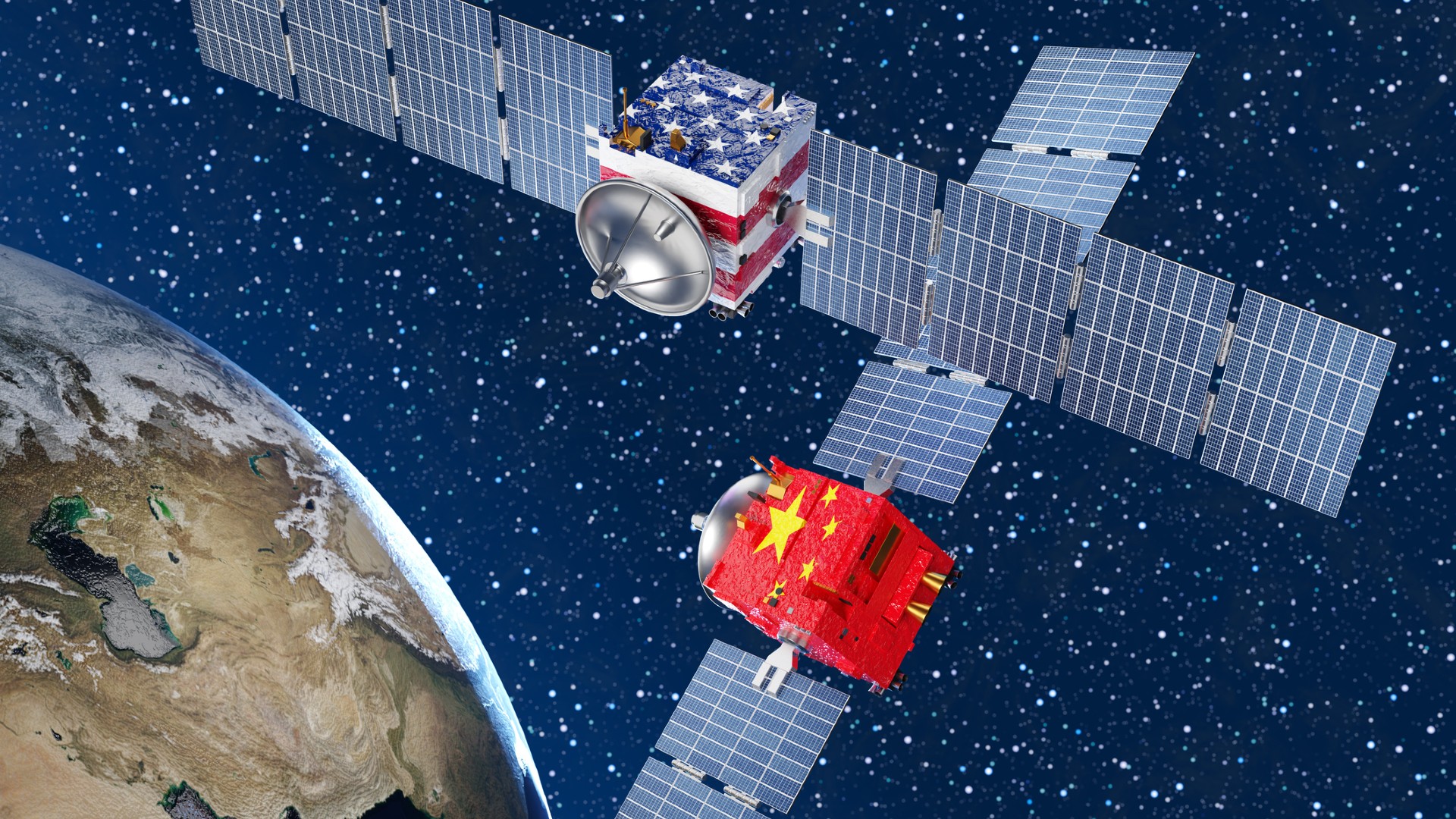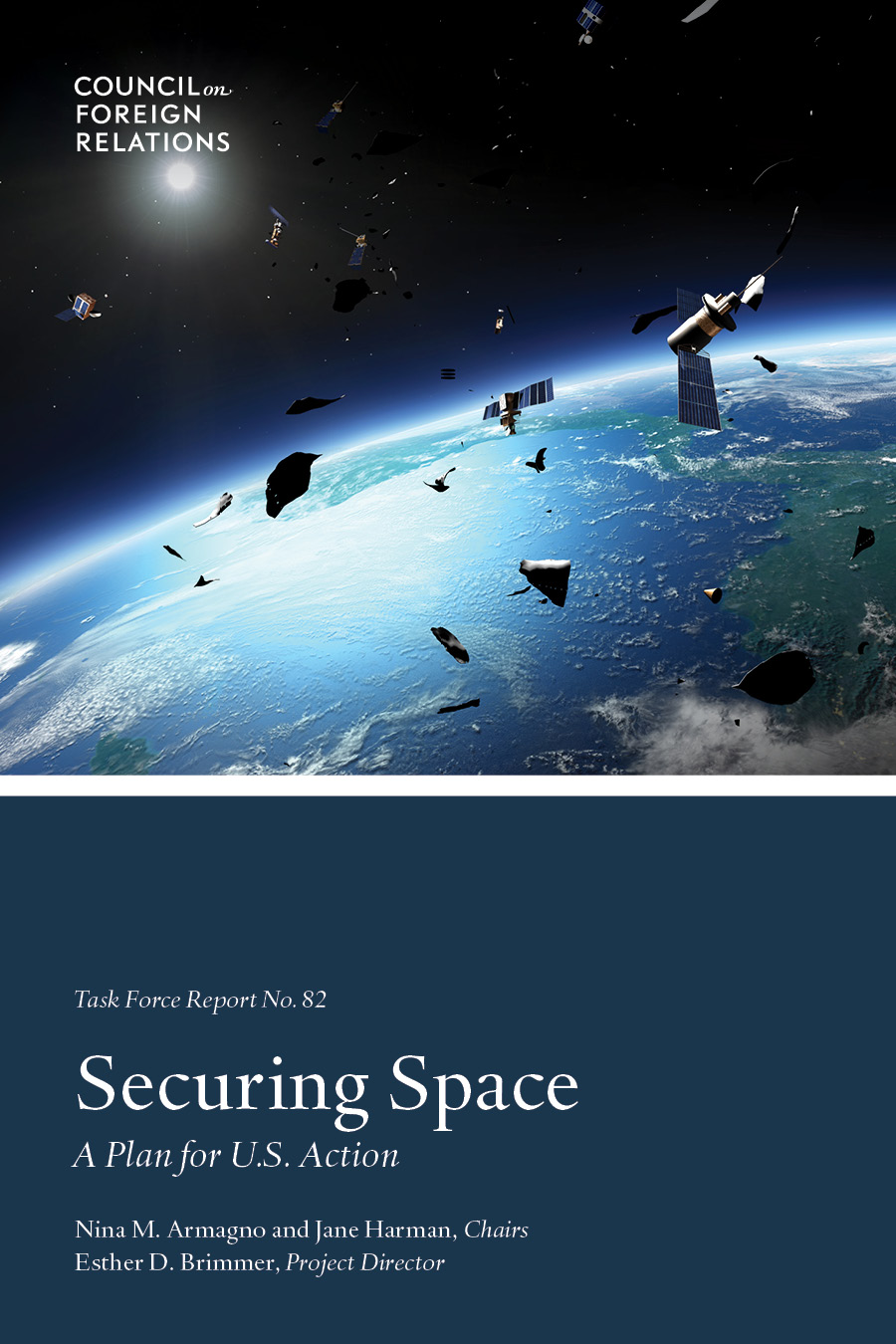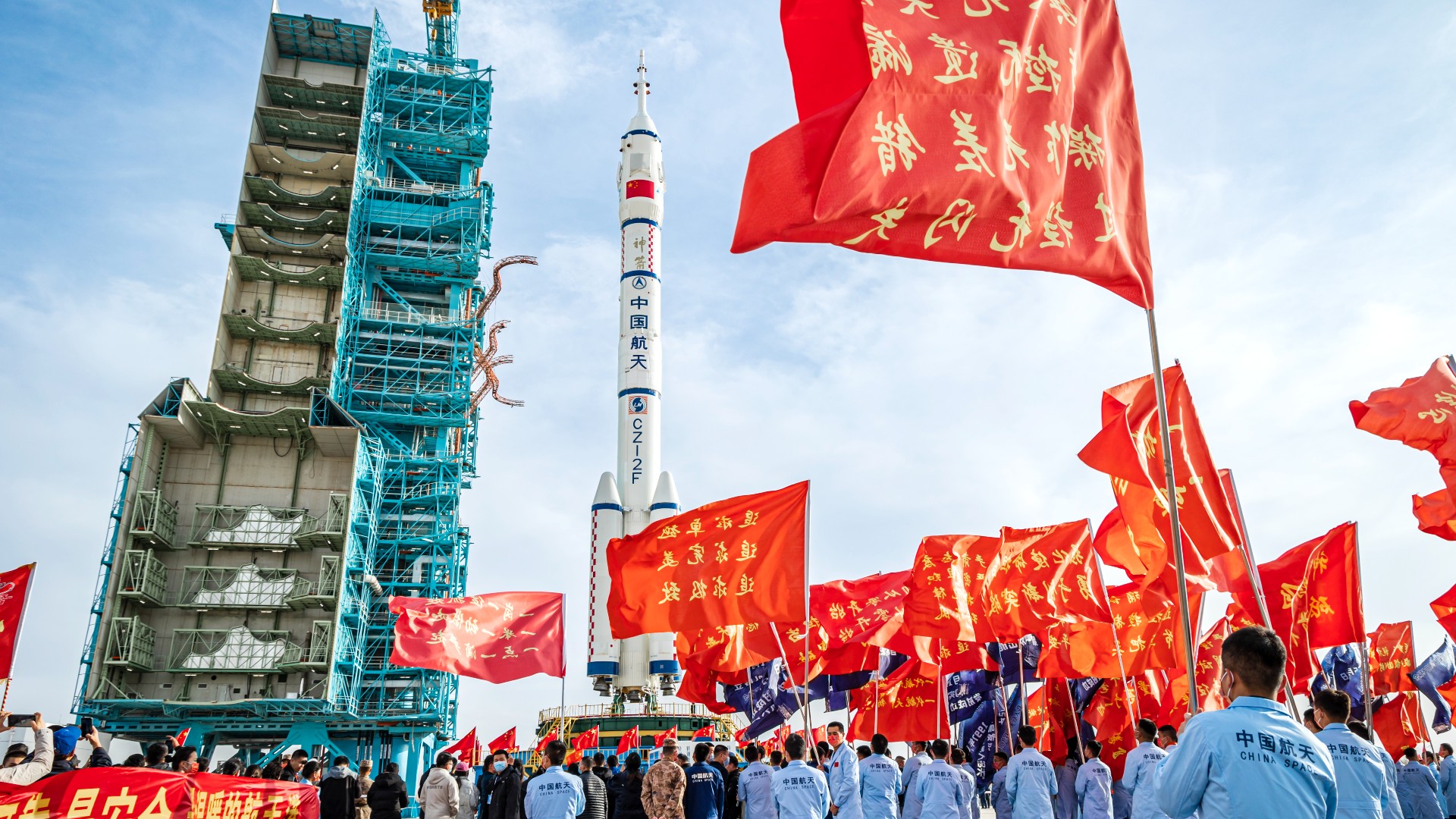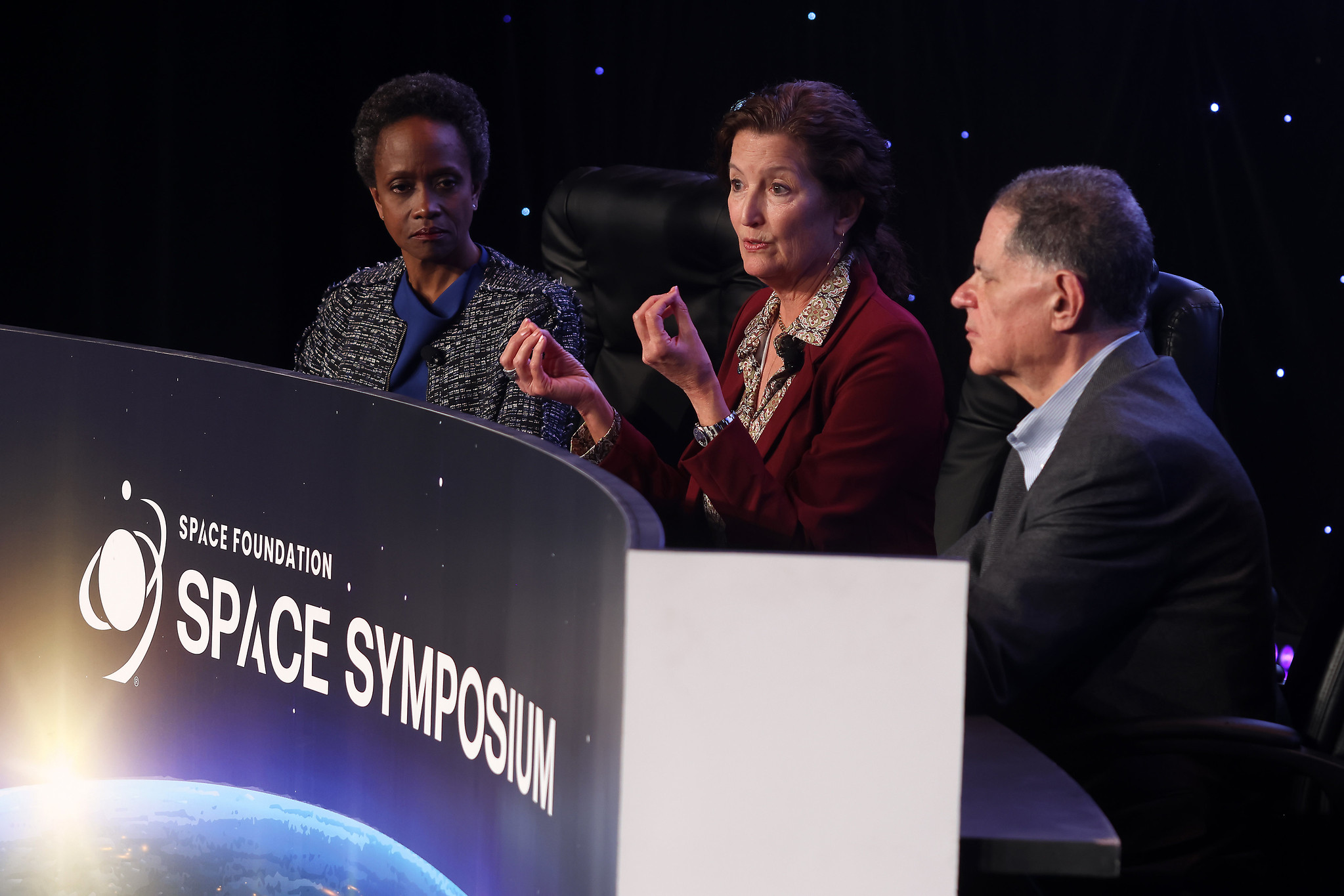
US and China need a space hotline for orbital emergencies, experts say
"China is there to stay in the space domain, so we need to figure out some ways to work together, at the very least, in an emergency situation."

Breaking space news, the latest updates on rocket launches, skywatching events and more!
You are now subscribed
Your newsletter sign-up was successful
Want to add more newsletters?

Delivered daily
Daily Newsletter
Breaking space news, the latest updates on rocket launches, skywatching events and more!

Once a month
Watch This Space
Sign up to our monthly entertainment newsletter to keep up with all our coverage of the latest sci-fi and space movies, tv shows, games and books.

Once a week
Night Sky This Week
Discover this week's must-see night sky events, moon phases, and stunning astrophotos. Sign up for our skywatching newsletter and explore the universe with us!

Twice a month
Strange New Words
Space.com's Sci-Fi Reader's Club. Read a sci-fi short story every month and join a virtual community of fellow science fiction fans!
COLORADO SPRINGS, Colo. — Finding a peaceful relationship with the growing prowess of China's space program could start with a simple phone call on a new hotline.
The United States needs to act now to address threats to space assets, find new approaches to space traffic management to support the growing space economy, and incorporate commercial perspectives into civilian and national security space policy. That's the output from a task force report sponsored by the Council on Foreign Relations, highlighted during the Space Foundation's 40th Space Symposium held April 7-10 in Colorado Springs.
The report, "Securing Space: A Plan for U.S. Action," asserts that if the United States is to adapt to today's fast-paced commercial, technological, and national security landscape in space, it needs to make space a top national priority. The report also calls for the creation of a space hotline with China, to be used to lower the risks of miscalculation or misunderstanding as the U.S. and China continue to militarize Earth's orbit.
Space: top national priority
Esther Brimmer, a senior fellow in global governance at the Council on Foreign Relations (CFR), said a specially-constituted task force proposed a seven-part plan, urging policymakers to reshape its approach to uphold U.S. leadership in space.
"There is no single international organization to help manage space, but we can work with the institutions we have," Brimmer said. She was the project director of the CFR space report.
CFR is an independent think tank, generating policy-relevant ideas and analysis on consequential issues that face the United States and the world.
Echo chamber
"It's the first time the Council on Foreign Relations has addressed anything to do with space," said retired U.S. Space Force Lieutenant General Nina Armagno. She served as co-chair of the CFR report along with Jane Harman, a former U.S. Congresswoman.
Breaking space news, the latest updates on rocket launches, skywatching events and more!
"The space economy is booming," said Armagno, with escalating booster launchings around the world that lob spacecraft into Earth orbit. "But with that, comes congestion, debris, and the threats that we all know are there by Russia and China."
But with all that activity, Armagno said "there are no rules in the space domain" and "is anyone listening, I don't know."
Within the space community there is an "echo chamber," Armagno said, noting that the CFR report on space is directed at the Trump administration with the intent that they will declare space as a national priority.
If funding is applied to that aim, said Armagno, "then we know this administration is listening."

Eyes wide open
Armagno said that the CFR report acknowledges that China is essentially here to stay. "Our report points to sharpening our policy on China. Our policy can't be 'China bad.'"
However, China is preparing for conflict in space, with some reports suggesting that it is honing "dogfighting" skills, Armagno added.
"Our policy has to be what can we do in the global domain together," but with eyes wide open knowing the U.S. and China don't agree on everything and there is geopolitical tension between the two countries, she said.
Two ideas fleshed out in the CFR report underscore needed rules of the road in space, said Armagno.
"We want to reinvigorate the discussion on establishing a hotline," Armagno told the audience. "We have a hotline with Russia," she said, so it's not rocket science, and could be modeled in similar fashion.
"So in case of an emergency or a miscalculation, we can pick up the phone and get the truth," observed Armagno.

Search and rescue
An additional idea broached in the CFR report is search and rescue, almost one of the oldest international endeavors that countries do together.
"There's already an astronaut rescue agreement, but it's only to rescue astronauts on the planet … if they end up in the ocean or on land. But there's nothing about rescuing astronauts in space," Armagno said.
This would be a table talk topic, Armagno said, to pursue with China ironing out the necessary steps of working together in an emergency situation, be it astronauts, cosmonauts, or even space tourists in trouble.
"China is there to stay in the space domain," Armagno said, "so we need to figure out some ways to work together, at the very least, in an emergency situation."
Military targets
Samuel Visner of the Space Information Sharing and Analysis Center focused on the ever-growing commercial space sector. He was a member of the CFR task force.
"The private sector is absolutely key to our national security," said Visner. It is intertwined with technological and economic security, he said, and "undermine any of them and you weaken our country, you weaken our allies and partners, and you weaken our global position."
The private sector's role in securing space needs to be fully recognized, Visner emphasized, but stressed that commercial space endeavors are also "targets of our adversaries."

Cyber attack
Visner said commercial space systems, be it for navigating trucks to precise harvesting of fields for enhancing agricultural output are now military targets.
"Our adversaries recognize that, potentially, they are vulnerable, that we depend on them, and they are preparing to exploit and attack them," said Visner.
As a case in point, Visner highlighted that the first attack by Russia in the ongoing invasion of Ukraine involved a cyber attack of a space system used by Ukraine.
"Russia has made it clear," Visner said, "that commercial space systems of their adversaries, Ukraine, potentially NATO, potentially the United States, are now legitimate military targets."
Wanted: best practices
Underscored during the symposium discussion is a warning from the CFR task force report: "Without immediate changes to how space is governed, the benefits of access to space could be lost to everyone. As the leading spacefaring country and the home base of the most innovative space companies, the United States is uniquely positioned to determine this future."
The report also notes that "unlike aviation, shipping, and telecommunications, the space economy lacks a unified, single international institution that can establish or enforce an agreed-on set of best practices."
The full report can be read on the Council of Foreign Relations' website, along with a video explaining its key findings.

Leonard David is an award-winning space journalist who has been reporting on space activities for more than 50 years. Currently writing as Space.com's Space Insider Columnist among his other projects, Leonard has authored numerous books on space exploration, Mars missions and more, with his latest being "Moon Rush: The New Space Race" published in 2019 by National Geographic. He also wrote "Mars: Our Future on the Red Planet" released in 2016 by National Geographic. Leonard has served as a correspondent for SpaceNews, Scientific American and Aerospace America for the AIAA. He has received many awards, including the first Ordway Award for Sustained Excellence in Spaceflight History in 2015 at the AAS Wernher von Braun Memorial Symposium. You can find out Leonard's latest project at his website and on Twitter.
You must confirm your public display name before commenting
Please logout and then login again, you will then be prompted to enter your display name.
